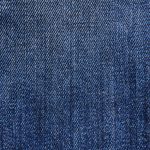If you’re on the hunt for the best quality cotton fabric, you’ve come to the right place. We’re here to shed some light on what truly defines top-notch cotton.
From fiber length to thread count, fabric weight to finishing processes, and even purity and organic certification, we’ll cover it all.
Don’t forget about reputation and brand authenticity – they play a significant role too.
So, buckle up and get ready to discover what makes cotton fabric truly exceptional.
Table of Contents
Fiber Length
When evaluating the best quality cotton fabric, fiber length plays a crucial role in determining its overall performance and durability. The length of the cotton fibers affects both the fabric’s strength and its softness.
Longer fibers tend to be stronger and more durable, making them ideal for high-quality fabrics. These fibers have fewer ends, which means there are fewer weak points in the fabric. Additionally, longer fibers allow for a smoother and more even yarn, resulting in a softer fabric that feels luxurious against the skin.
On the other hand, shorter fibers tend to produce a weaker fabric that’s more prone to pilling and fraying. They can also create a rougher texture, making the fabric less comfortable to wear.
Thread Count
To continue evaluating the best quality cotton fabric, let’s delve into the subtopic of thread count, which plays a significant role in determining the fabric’s overall quality and performance. Thread count refers to the number of threads woven into one square inch of fabric. It’s often used as a measure of fabric quality, with higher thread counts generally associated with better-quality fabrics.
When it comes to thread count, two factors are essential: weave patterns and dyeing techniques. Weave patterns, such as percale or sateen, impact the feel and durability of the fabric. Percale weave, known for its crispness and breathability, is achieved by weaving one thread under and one thread over. On the other hand, sateen weave, with its lustrous and smooth surface, is created by weaving four threads over and one thread under.
Dyeing techniques also affect the overall quality of the fabric. Yarn-dyed fabrics, where the yarn is dyed before weaving, tend to have more vibrant and long-lasting colors compared to piece-dyed fabrics, where the fabric is dyed after weaving.
Fabric Weight
Fabric weight is another crucial aspect to consider when determining the best quality cotton fabric. The weight of the fabric refers to how heavy or light it feels when you hold it in your hand. It’s determined by the thickness and density of the yarn used in the fabric.
Stitch density plays a significant role in fabric weight. A higher stitch density means more threads are packed into each square inch of the fabric, resulting in a heavier weight. This not only affects the overall feel of the fabric but also its durability. Fabrics with a higher stitch density tend to be more tightly woven and less prone to tearing or fraying.
Fabric texture also contributes to its weight. Different weaving techniques and finishes can create varying textures, from smooth and silky to rough and coarse. Generally, fabrics with a denser texture tend to be heavier. However, it’s important to note that texture alone doesn’t determine fabric weight. A fabric with a dense texture but a low stitch density may still feel lightweight.
When choosing the best quality cotton fabric, it’s essential to consider both stitch density and fabric texture. These factors won’t only affect the weight of the fabric but also its overall quality and performance. So, pay attention to these details to ensure you select the right fabric for your needs.
Finishing Processes
After considering fabric weight, another important factor to evaluate when determining the best quality cotton fabric is the application of finishing processes. These processes play a crucial role in enhancing the fabric’s characteristics and overall quality.
Here are three sub-lists that will help evoke emotion in you as you understand the significance of finishing processes:
-
Fabric softness and drape:
-
Softness and smoothness create a luxurious and comfortable feel against your skin.
-
A fabric with excellent drape flows gracefully, enhancing the elegance of any garment.
-
Imagine the joy of wearing a cotton fabric that feels like a gentle caress and hangs effortlessly.
-
Colorfastness and durability:
-
Vibrant and long-lasting colors bring joy and confidence to your wardrobe.
-
A cotton fabric that retains its color even after multiple washes ensures longevity.
-
Picture yourself wearing a cotton fabric that remains vibrant and strong, withstanding the test of time.
Purity and Organic Certification
One key factor to consider when determining the best quality cotton fabric is the level of purity and organic certification it possesses. The growth practices used in cultivating cotton can have a significant impact on its overall quality.
Organic cotton, for example, is grown without the use of synthetic fertilizers, pesticides, or genetically modified organisms. This ensures that the fabric is free from harmful chemicals and retains its natural properties.
Organic certification further guarantees that the cotton fabric has been produced in accordance with strict guidelines set by certifying bodies. These guidelines typically include factors such as soil fertility, water conservation, and biodiversity preservation. By adhering to these practices, cotton farmers help protect the environment and promote sustainable agriculture.
In addition to its environmental benefits, organic cotton also offers superior quality. It tends to be softer, more breathable, and less likely to cause skin irritation compared to conventionally grown cotton. This is because the absence of synthetic chemicals and genetic modifications allows organic cotton to retain its natural fibers, resulting in a fabric that’s both comfortable and durable.
When shopping for cotton fabric, look for products that carry organic certifications such as the Global Organic Textile Standard (GOTS) or the Organic Content Standard (OCS). These certifications provide assurance that the fabric you’re purchasing is of the highest quality and has been produced using environmentally-friendly practices.
Reputation and Brand Authenticity
Look for reputable brands that have a strong track record of producing authentic cotton fabric. When it comes to choosing the best quality cotton fabric, reputation and brand authenticity play a crucial role. Here’s why:
-
Reliability: Reputable brands have built their reputation on consistently delivering high-quality cotton fabric. You can trust that their products are made with the utmost care and precision, using the best manufacturing techniques.
-
Customer satisfaction: These brands have a loyal customer base who are satisfied with the quality of their cotton fabric. Positive customer reviews are a testament to the authenticity and excellence of their products. Reading through these reviews can give you valuable insights into the brand’s credibility.
-
Peace of mind: When you choose a reputable brand, you can have peace of mind knowing that you’re investing in genuine cotton fabric. Authenticity is important because it guarantees that the fabric is made from pure cotton, without any synthetic blends or inferior materials.
Frequently Asked Questions
Can Cotton Fabric With a Lower Thread Count Still Be Considered High Quality?
Yes, cotton fabric with a lower thread count can still be considered high quality. While thread count is important, it’s not the only factor. Fabric density, durability, and overall feel should also be considered.
What Are the Different Finishing Processes Used to Enhance the Quality of Cotton Fabric?
Different finishing processes and fabric softening techniques can enhance the quality of cotton fabric. By applying these methods, you can improve the texture, durability, and overall feel of the fabric, resulting in a higher-quality product.
Does Fabric Weight Have Any Impact on the Quality of Cotton Fabric?
Fabric weight and weave both play a significant role in determining the quality of cotton fabric. The durability of the fabric is impacted by these factors, making it important to consider when choosing the best quality cotton fabric.
How Can Consumers Ensure the Purity and Organic Certification of Cotton Fabric?
To ensure the purity and organic certification of cotton fabric, you should look for labels or certifications from reputable organizations. These certifications guarantee that the fabric is free from harmful chemicals and produced in an environmentally friendly manner.
Is Reputation and Brand Authenticity a Reliable Indicator of the Quality of Cotton Fabric?
Reputation and brand authenticity can serve as reliable indicators of cotton fabric quality. They signal trustworthiness and consistency in the market. However, it’s important to consider other factors like certifications and manufacturing processes for a complete evaluation.
- Fabrics and Their Role in Wellness and Comfort - July 22, 2024
- Choosing Safe Fabrics for Baby Clothes - July 22, 2024
- Impact of Fabrics on Skin Health - July 22, 2024







